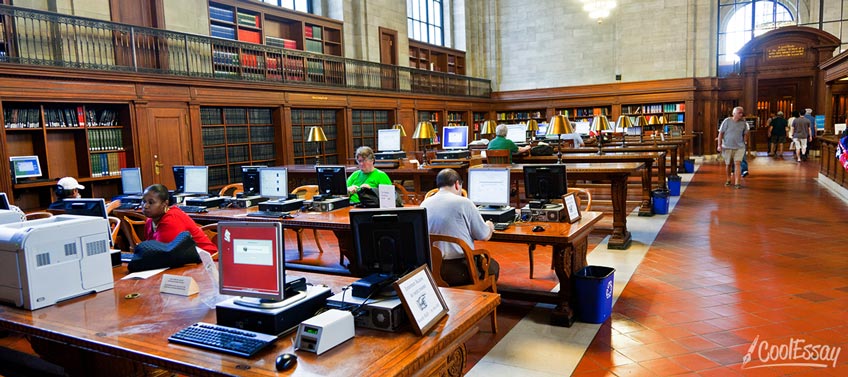
He was lucky to be born and to live in the age of the European Enlightenment, that is in the 18th century, and not a few centuries earlier. Otherwise, he could have been severely punished for his revolutionary views and ideas by those who claimed to be zealous adherents of religious traditions and sacred knowledge. Denis Diderot was destined to live among and work together with prominent people, geniuses of all times, who significantly influenced or even determined the way the new knowledge developed.
Let’s learn more about how one of the greatest French philosophers and authors spent 70 Earth years and what he managed to do within this time.
Where His Road Starts
On October 5th, 1713, Denis Diderot was born in Langres (a town in the French province of Champagne) into the family of a well-known local cutler, Didier Diderot, and his spouse, Angelique Vigneron. Denis was the eldest sibling of seven. In the beginning it could seem that the boy’s destiny was clearly preordained. He was a good and deeply religious student at the local Jesuit college, so it was decided that his true vocation was to serve the Church.
From Theology to Law
When he was fifteen or sixteen years old, Diderot moved to Paris to finish his study. Some historians agree on the fact that he attended two colleges, the Jesuit of Louis-the-Grand and the Jansenist College d'Harcourt, which supported and propagated opposing religious beliefs. Partly, that could later influence Diderot’s attitude to religion and cause significant changes in his personal views and convictions. So, after having obtained his Master of Arts degree, young Denis started to study law at the University of Paris. However, he gave it up one day. His father disowned son who did not choose any of the learnt professions, but Diderot handled his freedom very smartly.
Life Before Recognition
Diderot earned for his and his wife’s living by teaching and translating. He dedicated his time to studying mathematics and literature, mastering his English, enriching his knowledge of philosophy, and ghost-writing. Gradually, he managed to gather around himself quite a lot of prominent people who would become the authors of new advanced encyclopedia – the book which would turn out to be one of the most valuable masterpieces of the Enlightenment.
Diderot’s Philosophy: From Faith to Knowledge

Denis Diderot could be a good model of a person and philosopher who consciously and thoughtfully changed his worldview. What is more, he came to all his conclusions himself, as a free man who had a right to choose, and not as someone who just went with the tide. It is very likely that general accessibility of knowledge and his natural striving to learn helped Denis Diderot become a healthy sceptic and a sober humanist at the same time.
Criticism of Church
Diderot walked a long way from deism to materialism. That said, he was a philosopher who at the dawn of his adulthood based his worldview on sincere faith in God and Heaven; but as he saw all imperfections of the church and its laws, he tried not to justify it but to find a different, non-religious, explanation to things around him and his contemporaries. He claimed that rules of faith, set by the church, appeared more important than moral sense and state laws, which aimed to regulate harmonious relationships between all members of the community and contribute to the common good. Diderot believed that people were able to build a fair and intelligent society without religion and its restrictions.
Evolution vs. Creationism
The philosopher put aside the theory of creationism, which stated that everything in the universe had its divine origin. Gradually, he adhered to and developed the materialistic theory of evolution, which it its turn explained that all living beings evolved from simple microorganisms, according to real laws of Nature. Besides, Diderot connected physical and mental states of a human being, claiming that as feelings and impressions were memorized by a person, they hence could be a basis for their thinking activity.
Natural Ability to Cognize the World
Denis Diderot argued that people were able to acquire different knowledge due to their natural cognitive skills. The philosopher applied for skepticism as for a means to comprehend and achieve true knowledge. That said, Diderot did not consider that the church and religion had a right to the monopoly on general ideology and the ways people could cognize the world.
Knowledge Is Limitless
Diderot also claimed that there could not be absolute true knowledge. To put it simply, the philosopher said that it was impossible to know everything. However, people should try to determine what was already clear to them and understand how many things and phenomena still required correct explanations despite the fact that some of them could have been explained by religion many centuries ago.
Encyclopedie, ou Dictionnaire Raisonne des Sciences, des Arts et des Metiers

Before Diderot started to craft his magnum opus, which is still considered a literary monument of the Enlightenment, he had already gained some experience in working with encyclopedic system. Several years before Diderot was offered a project of a French encyclopedia, he was one of the editors of the Dictionnaire de Medecine (Medical Dictionary). Then, around 1750, a French printer and bookseller Andre le Breton approached him with the offer to translate Ephraim Chambers’ “Cyclopedia” from English to French.
Diderot managed to persuade the printer to create a new work, which was destined to become a great compendium of all knowledge available at that time. He also involved his prominent friends into the project, and worked together with Jean Jacques Rousseau, Jean le Rond d'Alembert and Voltaire.
More than twenty years later Encyclopedia or a Systematic Dictionary of the Sciences, Arts, and Crafts was completed. It had 17 volumes of printed text and 11 volumes of beautiful engravings. However, Denis Diderot had to finish the work on the Encyclopedia by himself, sacrificing his sight and health. The church and even government criticized him for his writing, so most of his colleagues refused to continue assisting him.
A Legend About a Kind Philosopher
Denis Diderot was known to be not only as the philosopher of great knowledge, but also as the man with big heart. After someone rescued him, a young and poor Parisian student, from starvation, he promised himself that he would always help those in need. So, the legend says that once, when Diderot was already quite famous, a young student came to his place and asked him to read a manuscript. It turned out to be a satire on Diderot. The philosopher asked the young man why he brought that work to him. The student answered that he hoped Diderot could give him some money for his promise not to publish the satire.
However, the wise philosopher offered the student to bring the work to the Duke of Orleans who just could not stand him and therefore would be glad to give the student even more money for the publishing of the satire. The only thing the text of the satire lacked was the dedication to the Duke, which Diderot agreed to write for the student. It was rumored that the Duke liked the satire very much and did pay the student some nice sum for his work.
However, as we can see today, even that satire could not do any harm to Denis Diderot’s reputation.